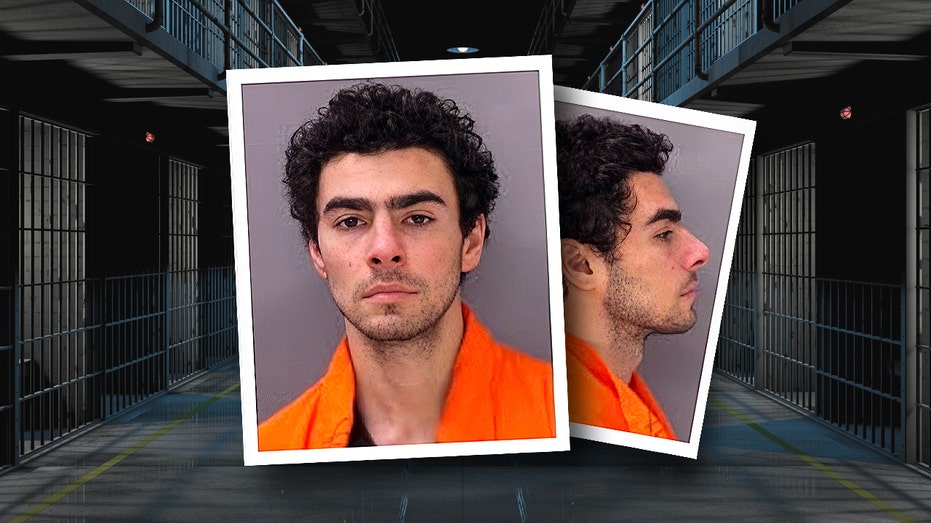How the U.S. Betrayed International Students
International students have been caught in the crosshairs of attacks on political dissent, noncitizens, and higher education.


Momodou Taal, a Cornell University international student who brought a lawsuit against the Trump Administration, didn’t appear for his March 25 court hearing in Syracuse, N.Y. The day before he filed the lawsuit, which requested an injunction on two of President Donald Trump’s executive orders for allegedly violating speech and due process rights, the U.S. government had revoked Taal’s student visa and soon after, commenced deportation proceedings. [time-brightcove not-tgx=”true”]
I attended the hearing in Syracuse where I live and work as a professor, one of many members of the public who filled the gallery of the courtroom that afternoon. Taal’s absence served as a chilling reminder of the dire situation students like him face in the wake of Trump’s immigration policy; appearing could have meant Taal’s immediate arrest and detention by Immigration and Customs Enforcement (ICE). The hearing was partly meant to address Taal’s request for a temporary restraining order on his arrest and deportation proceedings, which the court ultimately denied. Days later, he left the country of his own accord.
Taal is now one of many international students who have criticized the U.S. government and Israel while studying in the U.S. and since, had their ability to stay in the country jeopardized. Ranjani Srinivasan, a Fulbright recipient and Columbia University international student from India decided to self-deport to avoid detention after her visa was revoked. And Rumeysa Ozturk, a Turkish national and doctoral student at Tufts University was surrounded and taken on the street by masked agents. These are just a couple of the cases that have been made known to the public. Widespread reports reveal that ICE agents are targeting these students and throwing them into detention.
On March 27, U.S. Secretary of State, Marco Rubio, announced that some 300 international students already have had their visas revoked this year, caught in the crosshairs of the attacks on political dissent, noncitizens, and higher education. In the following weeks it was revealed that the Trump Administration had terminated the immigration records of approximately 4,700 international students. Then, last week, the Trump Administration abruptly reversed their policy and the Department of Justice announced that ICE would reinstate their immigration records. But for many affected students, the path forward remains uncertain.
Over one million international students are currently enrolled across U.S. colleges and universities, following a recent rise due to the intentional drive—in the vernacular of higher education—to “internationalize” our campuses. This trend is a facet of the global commodification of higher education, with universities across the country relying heavily on the enrollments, revenue, and labor of international students. Their growing presence means billions of dollars for the U.S. economy.
However, international students aren’t only deemed vital because of their economic importance; universities often boast of the increase in international student enrollments as part of their commitments to diversity and inclusion. But given the recent arrests of our international students, the new message being communicated by our country’s leaders is that their pursuit of higher education in the U.S. is purely an economic transaction and as foreign students, they have no place engaging in political criticism.
U.S. history tells a different story though. Students from overseas have long played a valuable role in the culture of American campuses. In my own work, I have written about how Indian international students were key figures in anti-colonial struggles that took form in the U.S. in the early 20th century. And in the 1960s and 1970s, students from India, Iran, and China, along with other foreign students, took part in the internationalist social movements that spread across American campuses to protest U.S.-led wars, fight racism, and hold repressive governments to task. In such historic moments, students from around the world stood side-by-side with American students, risking political repression to offer moral clarity to our collective conscience and push us toward a more just global society. International students joining the student-led demonstrations against the killing of Palestinians in Gaza continued this tradition of free speech and protest.
Still, this isn’t the first time that foreign students have come under national scrutiny. For instance, after the 9/11 attacks, international students were rendered a potential national security threat; consequently, several surveillance measures were taken, including the permanent establishment of a mandatory monitoring system called the Student and Exchange Visitor Program or, “SEVIS,” which requires higher education institutions to track and report on its international students to the Department of Homeland Security.
But today, the renewed targeting of international students has revolved around a crackdown on political protest on campuses—a crackdown which began under the Biden administration and has accelerated under the Trump administration. The fact that students have been detained and deported suggests that there has been insufficient institutional resistance to the erosion of some of the most fundamental principles necessary to the health of academia—academic freedom, freedom of speech, the right to dissent. It also sends the message to the very students we draw in from abroad to fulfill economic agendas and marketing narratives, that their membership in U.S. university life is contingent on their political silence.
However, international students are our students and remaining complacent as their perspectives are brutally suppressed and they are dragged away from our campuses—which should serve as safe, nurturing spaces for intellectual exchange and political criticism—harms us all. Targeting international students threatens all of us by dictating the terms by which anyone can lay claim to institutional spaces and cultures of higher learning in the U.S. To be sure, the cost of silencing dissenting voices won’t be paid by international students alone.
















_Vladimir_Stanisic_Alamy.jpg?width=1280&auto=webp&quality=80&disable=upscale#)






















































